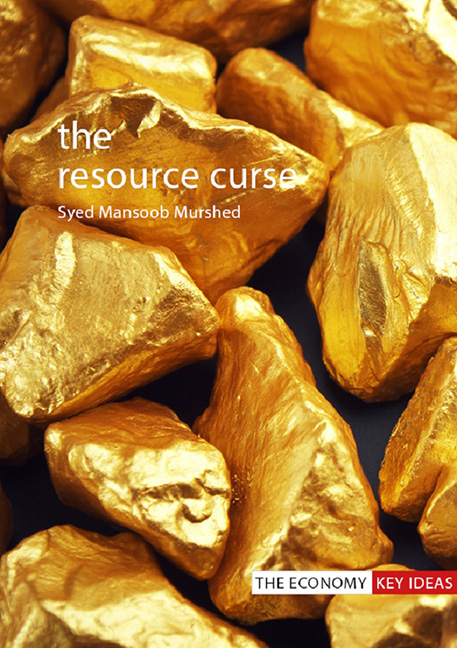Book contents
- Frontmatter
- Dedication
- Contents
- Acknowledgements
- 1 Introduction: explaining the resource curse
- 2 The Dutch disease and deindustrialization
- 3 Growth and the institutional resource curse
- 4 Empirical evidence on the resource curse
- 5 Resource rents and violent internal conflict
- 6 Managing resource rents
- 7 Concluding comments
- Appendix 1 Growth collapse with rent-seeking
- Appendix 2 A model of civil war with greed and grievances
- References
- Index
2 - The Dutch disease and deindustrialization
Published online by Cambridge University Press: 09 August 2023
- Frontmatter
- Dedication
- Contents
- Acknowledgements
- 1 Introduction: explaining the resource curse
- 2 The Dutch disease and deindustrialization
- 3 Growth and the institutional resource curse
- 4 Empirical evidence on the resource curse
- 5 Resource rents and violent internal conflict
- 6 Managing resource rents
- 7 Concluding comments
- Appendix 1 Growth collapse with rent-seeking
- Appendix 2 A model of civil war with greed and grievances
- References
- Index
Summary
This chapter explores the theory behind the resource curse thesis. It will show how the discovery of natural resources, or an increase in the demand or price of existing resources, can lead to increased rents or revenues that effectively crowd out other productive activities in the economy. A natural-resource-based revenue boom for an economy is akin to a gift, or “manna from heaven”. This naturally leads to a spending boom, but also to a resource reallocation effect, in which the economy’s output switches from traded goods to non-traded goods and services such as housing. This phenomenon has come to be known as the “Dutch disease”.
To show how this occurs, I first present a model – which is a simplified version of the Findlay and Lundahl (1994) historical “Christopher Columbus” model – inspired by the experiences of the regions of recent settlement between c.1870 and 1914, where increases in demand for natural-resource-based products, agricultural and mineral, did not necessarily preclude growth in manufacturing. I then present my own open economy multisectoral model of the “Dutch disease” (Murshed 2001), mainly in connection with mineral and fuel price spikes, in which the syndrome can be avoided by judicious policy choices. Finally, we come to the long-term aspect of prolonged Dutch disease, namely a loss of competitiveness in manufactures, which – if not “treated” – causes permanent and premature deindustrialization.
A resource boom tends to crowd out the other leading sector of the economy. So, in countries that previously exported manufactured goods, that sector contracts (as was the case in the United Kingdom after the discovery of North Sea oil in the 1970s, for example); in developing countries, it could be the agricultural sector. In an open economy a substantial current account surplus emerges, leading to currency appreciation under a regime of flexible exchange rates. This makes existing (non-resource-boom) exports uncompetitive in world markets. This has been argued to have contributed to the deindustrialization of the United Kingdom in the 1980s and later. It can also produce episodes of unemployment despite the oil revenue bounty, as in the United Kingdom during the early 1980s, if the exchange rate appreciates excessively (overshoots its long-run equilibrium level); see the models analysed in Murshed (1997: chap. 6).
- Type
- Chapter
- Information
- The Resource Curse , pp. 11 - 30Publisher: Agenda PublishingPrint publication year: 2018



